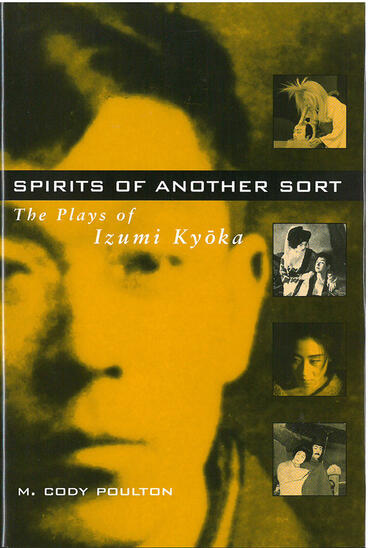Spirits of Another Sort
The Plays of Izumi Kyoka
The first work in any language to focus on the plays of Izumi Kyoka, a major literary figure in modern Japan
Description
Izumi Kyōka (1873–1939) had a predilection for the richly figurative and supernatural that seemed not only irrelevant to the concerns of modern life but an affront to the social and psychological realism that became the common currency of both literature and theater in modern Japan. Believing in beauty and truth and in language’s mystical evocation of experience, Kyōka sought for a way to reinvest the world with a kind of magic that he felt was being lost. Although better known as a novelist, Kyōka also wrote a large number of plays, and his work has continued to be adapted by others for the stage and screen. Spirits of Another Sort, the first work in any language to focus on Izumi Kyōka’s career as a playwright, argues that the dramas reveal, in an often unmitigated fashion, the writer's romanticism, his belief in the occult, his aversion to contemporary society, and his idiosyncratic but powerful ethical and aesthetic ideals. In an attempt to create a dramaturgy of the sacred from the dregs of the past, Kyōka’s plays resemble the work of Maeterlinck or even Artaud. Spirits of Another Sort is a literary-critical study that traces the development of Kyōka’s work from the melodramatic formulas of his early ideological fiction to the increasingly grotesque and fantastic permutations of the original pattern in his plays of the Taishō era. It is important reading for people interested in Japanese literature, theater, and film and in cross-cultural theater and film.
M. Cody Poulton is Associate Professor in the Department of Pacific and Asian Studies, University of Victoria, British Columbia, Canada. His research interests include modern Japanese fiction and drama and premodern Japanese drama, narrative, and poe
Reviews
“This study fills a gap in the limited English-language studies, is a significant contribution to the field, and is a reference useful for teachers and students alike. Alongside its translation and discussion of plays, the study’s broad sweep traverses an impressive selection of Kyoka’s early nondramatic fiction, essays, and biographical data . . . The study is encyclopedic in its breadth.”
—Nina Cornyetz, in the Journal of Japanese Studies

